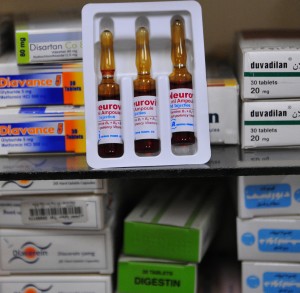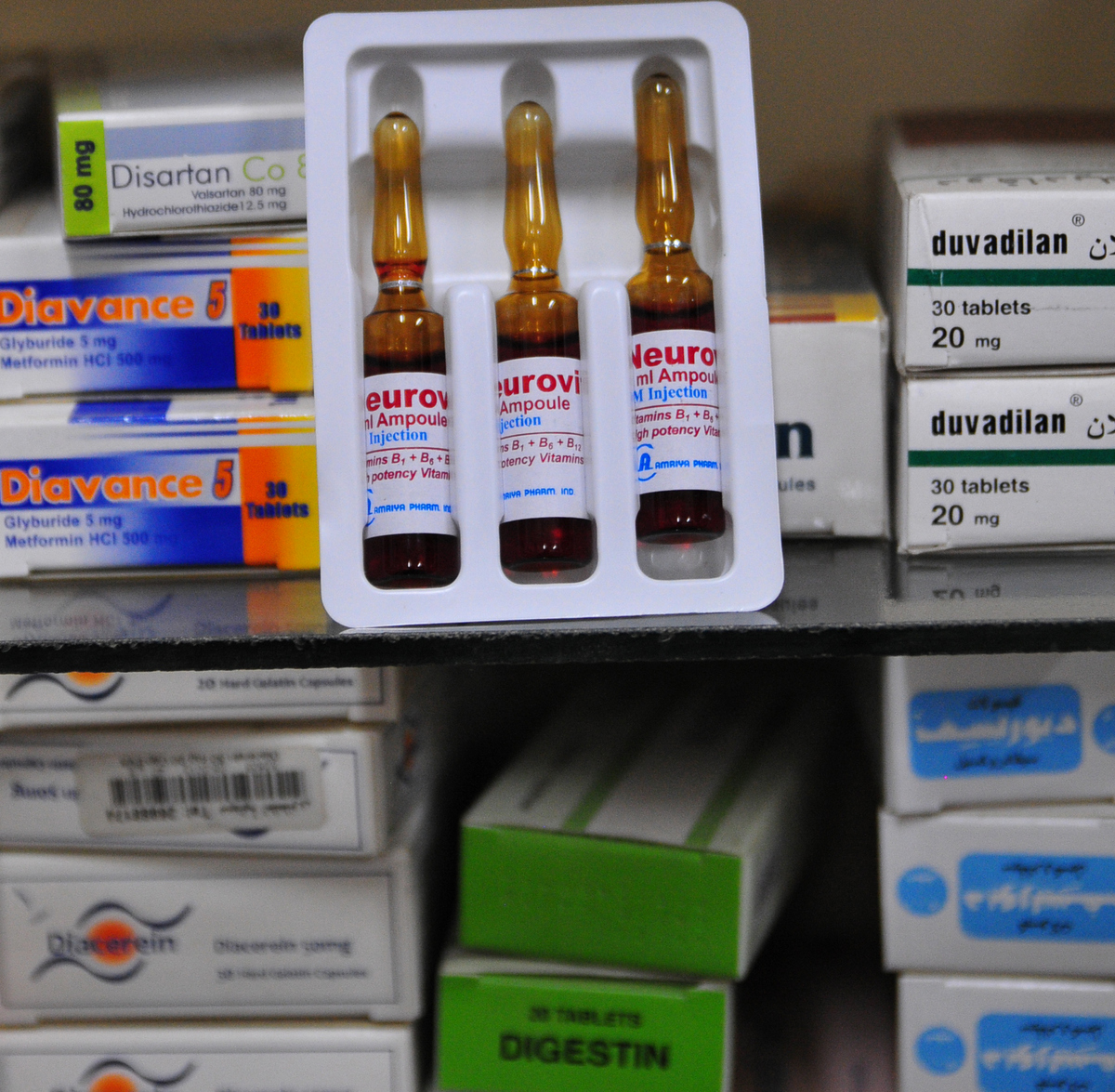
(Photo by Hassan Ibrahim)
Several leading companies, mainly in the construction and food industries, have announced intentions to join the Egyptian Stock Exchange (EGX) in 2015. Despite receiving much attention from the real estate, telecommunication and food industries sectors, many remain under the investors’ radar, including the chemicals sector, as well as healthcare and pharmaceuticals.
Mahmoud Metwally, deputy CEO at HC Securities and Investment, said the pharmaceuticals market is “fairly regulated”.
“The prices are rather set by the government,” Metwally said. “Any price increases must be approved by the government so they don’t have the same growth as other sectors.”
He added that the reason the telecommunication sector became attractive, was due to the high growth rate in earning that it has lately witnessed relative to other markets.
Metwally pointed out that real estate stocks are a “good hedge against inflation”.
In January 2015, the trading volume reached 33.4m shares in the healthcare and pharmaceuticals sectors, whilst the chemicals sector reached 17.5m shares. The trading volume in the healthcare sector recorded EGP123.4m while it amounted to EGP 174.3m in the chemicals sector.
The Real Estate sector topped the stock market in terms of value of traded stocks, recording some EGP2.57bn. The second place went to the telecommunications sector while the banks sector took the fourth place.
Marwa Hamed, an executive at Watheeqa Securities, said the pharmaceuticals and chemicals sectors are more appealing for institutions that seek a long-term investment.
“For individual traders, unless it’s an investment in medicine stock, it would not be recommended for individual trader,” she said.
In January, the healthcare, pharmaceuticals, and chemicals sectors were among the lowest sectors in terms of trading volume and trading value.
Hamed mentioned that the appeal is influenced by the company’s name and assets, rather than the sector it works in.
“Companies that have a big land portfolio, for example, are more attractive for investors because they are more secure,” she added. “Lands can be sold or utilised in constructing new projects.”
Hamed stressed, however, that the lack of liquidity in the market is affecting all sectors.
“Egyptian institutions lack a clear direction and they end up selling the shares for less than their nominal price,” Hamed said, adding that this is “unnecessary and is harming the capital market”.
The same sectors dominated the market in February, however, the value of traded constructions and materials placed first with EGP 12.9bn. The second, third and fourth places went to the real estate sector, the financial services sector and the banks sector with EGP 2.397bn, EGP 2.212bn and EGP 1.65bn, respectively.
The healthcare, pharmaceuticals and chemicals sectors were some of the lowest traded sectors in the Egyptian Exchange.
In March, the healthcare, pharmaceuticals and chemicals sectors maintained their low stock market positions with EGP 182.8m and EGP 129.7m value of traded shares. The real estate, telecommunications and non-banking financial services stayed in the leading position.
Hisham Kenawi, vice president of local and Gulf sales at HC securities, said those sectors have high free float, which is the main reason why they are always dominating the market.
“The price of real estate vary from one month to the next,” Kenawi said, explaining that investors can benefit from those changes so they trade those stocks more frequently.
“The healthcare and pharmaceutical sectors are more stable,” Kenawi added. He said that sometimes they witness a surge in trading volumes but they are not as attractive to investors as the other stocks.
The total value of stocks traded in the first quarter (Q1) of 2015 registered EGP 79.8bn, compared to EGP 64.9bn the preceding quarter. In January 2015, the volume of stocks traded was 2.88bn with a total value of EGP 21.7bn. The following month, the volume of traded stocks declined to 2.72bn, however the value to stocks traded increased to EGP 33.87bn. During March, the volume of stocks traded registered 2.78bn, with a total value of EGP 24.19bn.
In April, the healthcare and pharmaceuticals recorded EGP 209.7m in terms of value of traded stocks and around 27.2m shares were traded. The volume of shares traded during the same month for the chemicals sector was about 11.2m shares while the value of those shares totaled EGP 165.3m.
During May, the financial services, real estate and telecommunications sectors topped the Egyptian stock market’s list. They recorded EGP 2.5bn, EGP 2.46bn and EGP 2.16bn, respectively.




